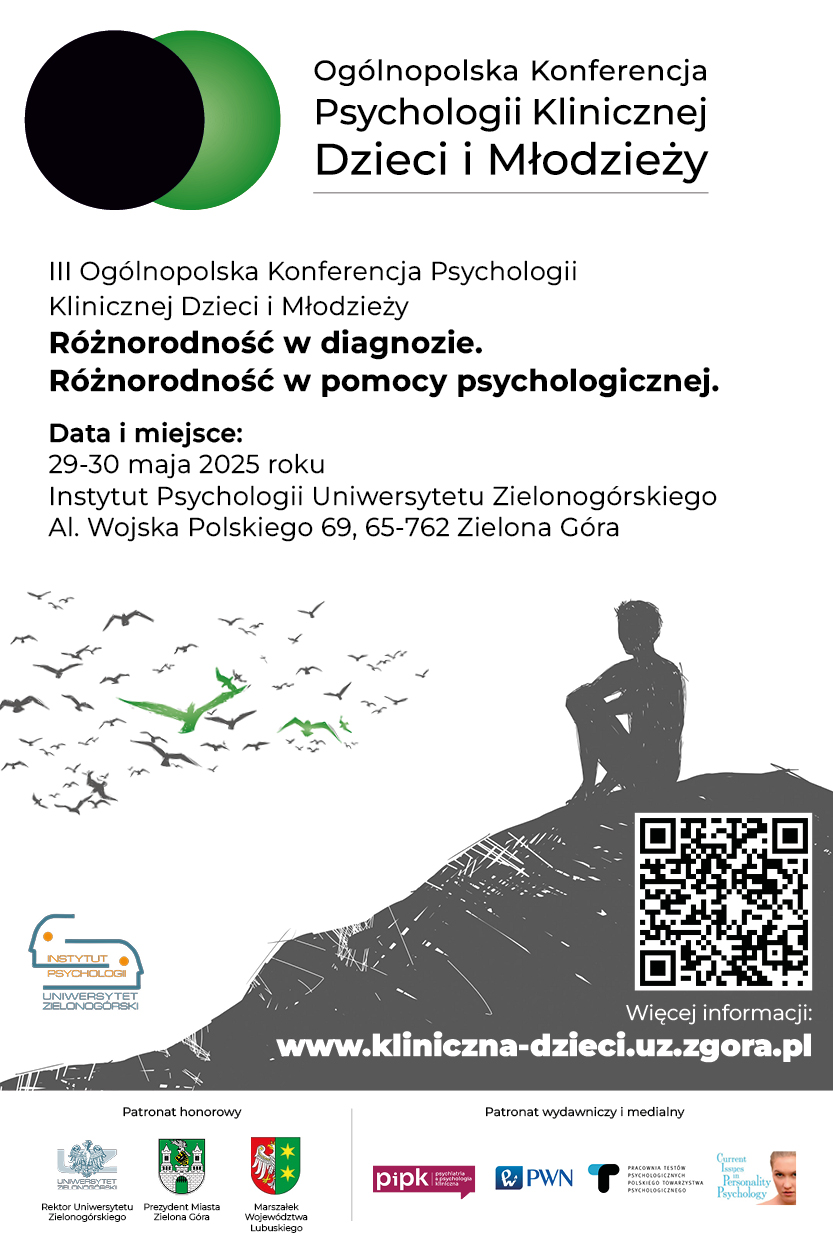Depersonalisation – a key to understand the complexity of dissociative phenomena
Radosław Tomalski, Igor J. Pietkiewicz
 Affiliacja i adres do korespondencji
Affiliacja i adres do korespondencjiThe concepts of depersonalisation and derealisation refer to alteration in how an affected individual feels about oneself and their environment. Both these experiences may range from mild and episodic to severe and chronic. When clinically severe, these symptoms can be the basis for the diagnosis of depersonalisation-derealisation disorder; however, they are viewed as transdiagnostic, as they accompany various mental disorders. Literature emphasises the heterogeneous nature of the discussed construct, which includes several dimensions such as derealisation, somatopsychic depersonalisation, autopsychic depersonalisation and affective depersonalisation. This phenomenological complexity is reflected in the complex neurobiological mechanisms responsible for depersonalisation experiences, of which the theory of cortico-limbic inhibition is best described. Symptoms of depersonalisation and derealisation can be triggered by a variety of factors, such as physiological states (fatigue, stress, etc.), central nervous system abnormalities or psychoactive substances. In many cases, however, traumatic experiences are crucial, with most empirical evidence pointing to the role of emotional abuse and neglect. Trauma can alter responses of the autonomic nervous system, which mediates the symptoms of depersonalisation and derealisation (e.g. freeze response). The attachment style may be another mediator. Although depersonalisation and derealisation were conventionally assigned to the category of detachment, it has been suggested that they also bear features of compartmentalisation under certain circumstances. The analysis of the impact of various developmental processes on the formation of the complex phenomenon of depersonalisation sheds new light on the understanding of dissociative disorders and the importance of dissociation in psychopathology.






















